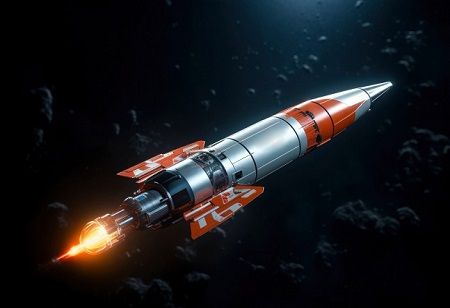
ISRO has recently made a rocket engine technology milestone by advancing a lightweight Carbon-Carbon (C-C) nozzle for rocket engines, boosting payload capacity. The innovation achieved by the Vikram Sarabhai Space Centre (VSSC), a space agency, aims to enhance critical parameters of rocket engines such as thrust levels, specific impulse, and thrust-to-weight ratios, leading to an increased payload capacity for launch vehicles, as stated.
Using techniques like carbonization of green composites, chemical vapor infiltration, and elevated-temperature treatment, it has developed a nozzle with low density, strength and remarkable stiffness. According to the statement, The nozzle can maintain its mechanical properties even at increased temperatures.
The prospective influence of this progression is noteworthy, especially for the Indian Space Research Organisation's (ISRO) primary launcher, the Polar Satellite Launch Vehicle (PSLV). Currently, the PS4, the fourth stage of the PSLV, uses twin engines with nozzles crafted from columbium alloy. Nevertheless, by substituting these metallic divergent nozzles with C-C counterparts, the space agency estimates a reduction in mass of approximately 67 percent.
This replacement is expected to raise the PSLV's payload capacity by 15 kg, a significant improvement for space missions. The successful testing of the C-C nozzle divergent represents a significant milestone for ISRO.
"Subsequent tests, including a 200-second hot test on April 2, 2024, further validated the nozzle's capabilities, with temperatures reaching 1216 K, matching predictions," the release said.
We use cookies to ensure you get the best experience on our website. Read more...